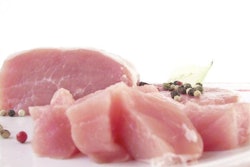Evonik Industries is on schedule with its plans to build a second world-scale plant for the production of the amino acid DL-methionine in Singapore. The company marked the official start of construction with a symbolic ground-breaking ceremony recently, officiated by Tharman Shanmugaratnam, Singapore Deputy Prime Minister & Coordinating Minister for Economic and Social Policies. The complex will have an annual production capacity of 150,000 metric tons and is expected to become operational in 2019, with investment costs of more than half a billion euros (US$0.54 billion). Evonik sells DL-methionine under the brand name MetAMINO.
“Our methionine complex, which came on-stream in late 2014 on Jurong Island, is a success story. This led to our decision to build a second plant next to it,” said Klaus Engel, the chairman of the Executive Board of Evonik Industries. “The demand for MetAMINO for animal nutrition is continuing to grow at a very fast rate in Asia." The new plant will not only produce methionine, but also all strategically important precursors to guarantee product quality and supply security.
“Singapore has proven an ideal location for supplying our Asian customers,” said Reiner Beste, chairman of the Board of Management of Evonik Nutrition & Care. The new complex will create more than 150 jobs at the location. “We are pleased to have such qualified personnel available to us in this country,” Beste continued.
The new production complex will increase Evonik’s annual capacity of MetAMINO to a total of approximately 300,000 metric tons in Asia and to approximately 730,000 metric tons worldwide. The specialty chemicals company produces the amino acid in its world-scale plants in Antwerp, Belgium, Wesseling/Cologne, Germany, Mobile, Ala., and Singapore.
DL-methionine is an essential amino acid, which must be absorbed through feed intake. As a feed additive, it contributes to the efficient, healthy and environmentally friendly nutrition of livestock, particularly poultry and swine. That makes it an important component of ensuring a sustainable animal protein supply for the world’s growing population.

















